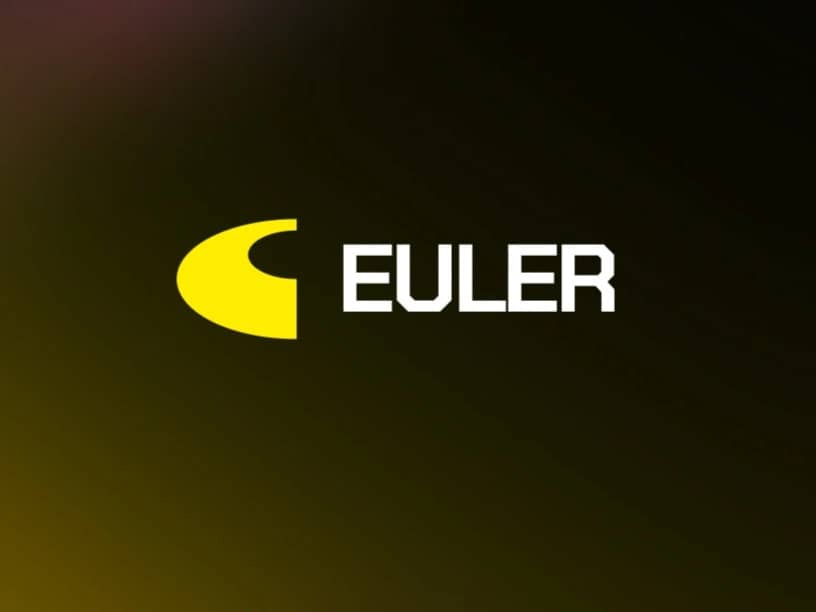订阅 wiki
Share wiki
Bookmark
Euler AI
0%
Euler AI
Euler AI 是一个去中心化基础设施平台,支持自主的链上 AI 代理。它集成了实时决策、多代理协调和 区块链 原生执行,以实现可扩展的、AI 驱动的金融和治理系统。 [1]
概述
Euler AI 正在为去中心化环境开发一个以 AI 为中心的基础层,从而实现实时的、自主的多代理系统。它将链上 AI 执行与 区块链 基础设施集成,使代理能够在流动性管理、交易、治理和跨链协调等任务中以最少的人工干预进行操作和调整。
其核心是 AI Base,这是一个高吞吐量的执行层,针对低延迟推理、并行处理和持久状态处理进行了优化,解决了传统 区块链 系统的局限性。Euler 还结合了强化学习和去中心化训练,使 AI 代理 能够跨 区块链 网络迭代地改进和协调。这创建了一个框架,其中 AI 与去中心化系统交互,并帮助塑造和优化它们。 [2]
特点
AI Base 链
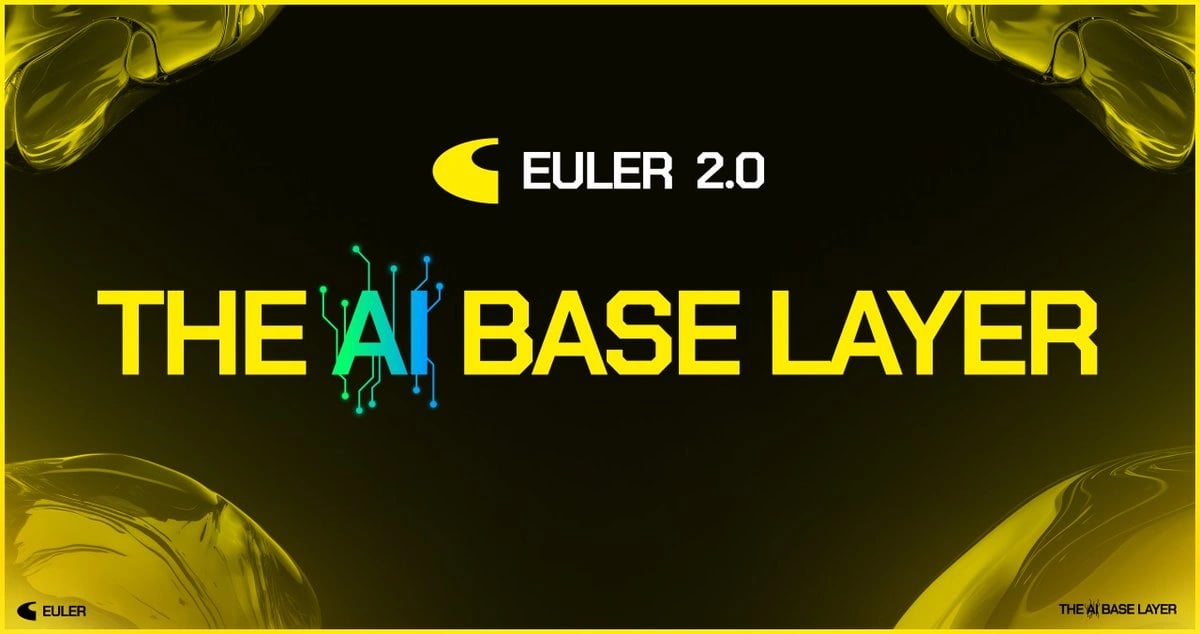
AI Base 链是一个定制的执行层,旨在处理在去中心化环境中运行的 AI 驱动的多代理系统的计算和流动性需求。它提供了一个可扩展的、高吞吐量的基础设施,将 AI 功能直接集成到 区块链 堆栈中,从而在金融和治理应用程序中实现实时的、自主的决策。
AI Base 链建立在 Solana 的高性能模型之上,支持低延迟的 智能合约 执行、并行处理以及 AI 代理 之间的确定性交互。这种架构允许开发人员构建系统,其中 AI 代理 自主管理诸如流动性供应、算法交易和治理功能等任务。对于用户而言,它通过启用自适应的、AI 驱动的策略来最大限度地减少 滑点 并优化市场参与度,从而提高资本效率。该链为 去中心化应用程序 建立了一个基础,使其能够与自主 AI 系统以协调和可扩展的方式协同运行。 [3]
AI 基准
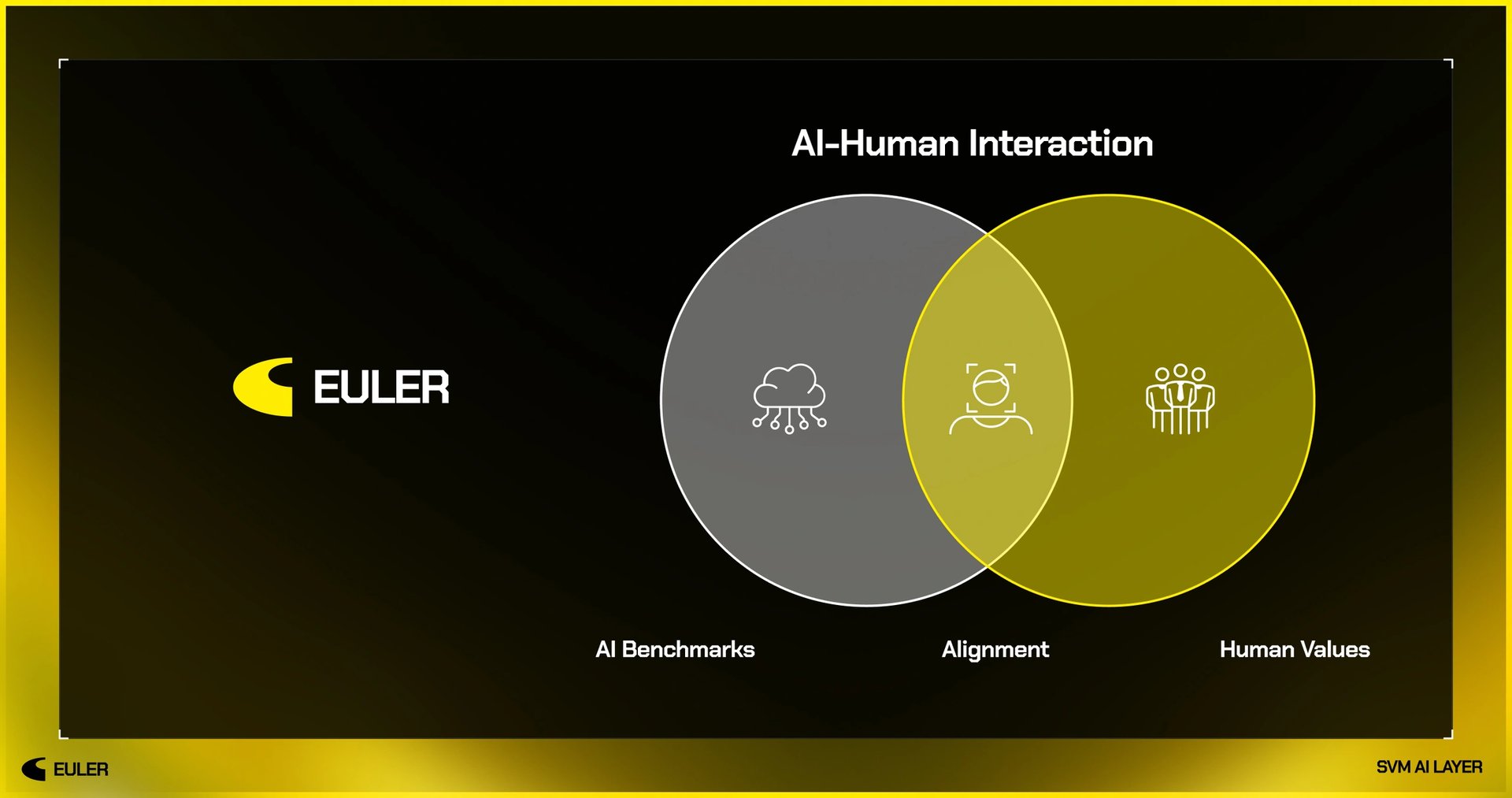
AI 基准是一个链上评估系统,用于持续评估 Euler 生态系统中 AI 代理 的性能和一致性。与静态的、离线的基准不同,它使用实时的、去中心化的反馈模型来考虑去中心化环境中典型的动态和对抗性条件。
该框架评估 AI 代理 在优化流动性、交易策略和自动化治理方面的有效性。它聚合性能数据并激励持续的模型改进,从而帮助防止诸如流动性囤积或对抗性交易等有害行为。这确保了 AI 代理 能够高效地运行,并在道德和运营范围内运行,从而支持更安全、更可靠的金融自动化。 [4]
AI 编排器
AI 编排器是一个 AI 驱动的 API 网关,旨在聚合和处理实时的、多链 区块链 数据,以实现去中心化的金融自动化。它支持 AI 代理 执行自适应交易、流动性优化和风险缓解等任务所需的高频数据流,而这些功能是大多数 区块链 基础设施本身不支持的。
通过建立去中心化的数据管道,AI 编排器将跨链价格馈送、流动性指标和交易分析集成到一个快速的、与 AI 兼容的环境中。与传统的预言机不同,它支持实时数据访问和执行,从而使 AI 代理 能够对风险进行建模、标准化跨链数据,并自主执行诸如 套利、流动性再平衡和跨多个 区块链 网络的治理决策等任务。 [5]
Euler SDK
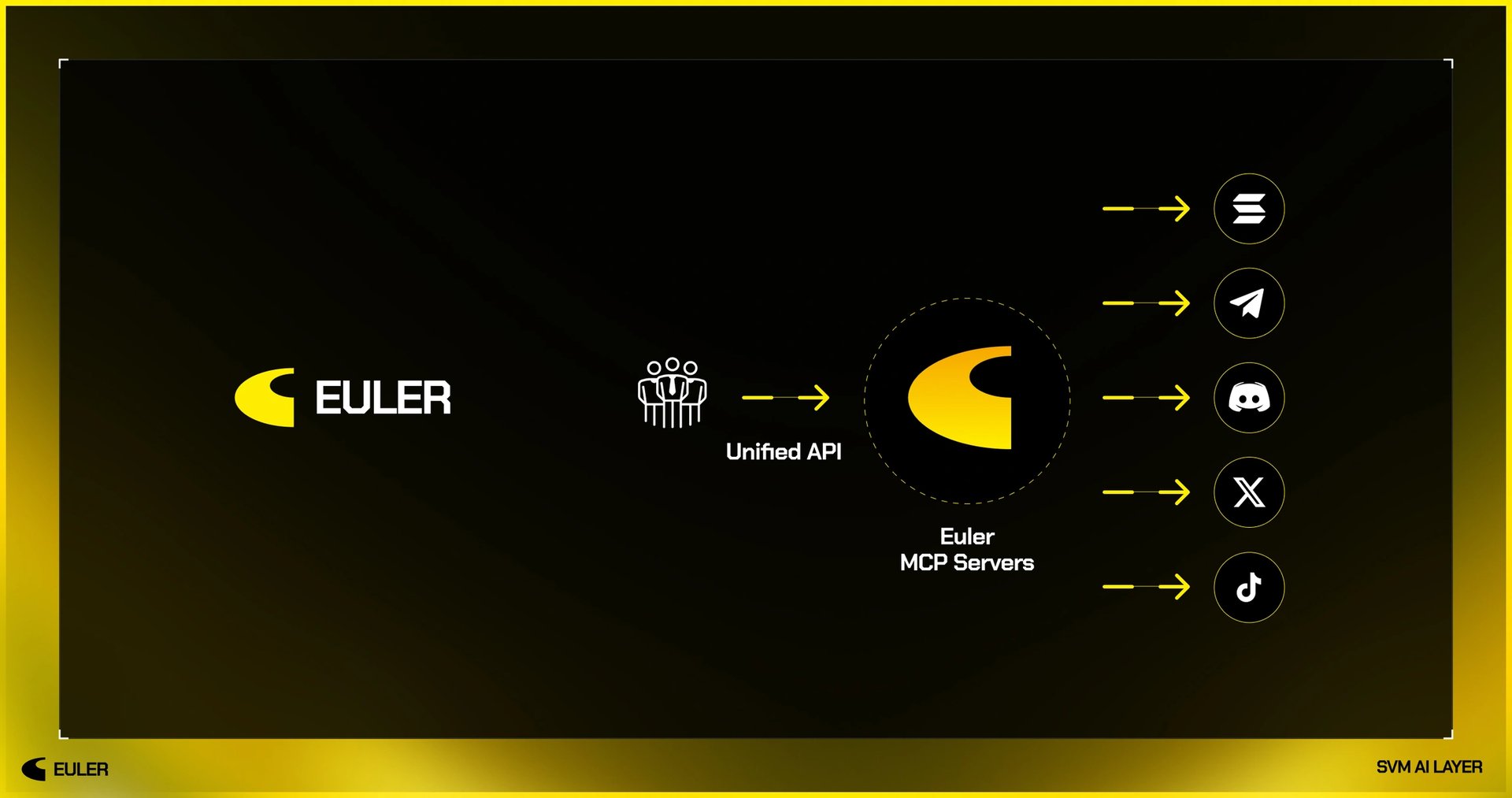
Euler SDK 是一个开发工具包,旨在构建直接在链上运行的 AI 原生代理 和多代理系统。它支持创建模块化、可验证和可组合的 AI 代理,这些代理针对 Solana 的高吞吐量环境中的实时执行进行了优化。
与专注于应用程序开发的传统 SDK 不同,Euler SDK 支持去中心化智能系统的设计。它提供了构建实时链上 AI 工作流程、将代理与基准测试和编排框架集成以及使用诸如多方计算 (MPC) 和 零知识机器学习 (zkML) 等技术实施隐私保护功能的工具。 [6]
MCP 层
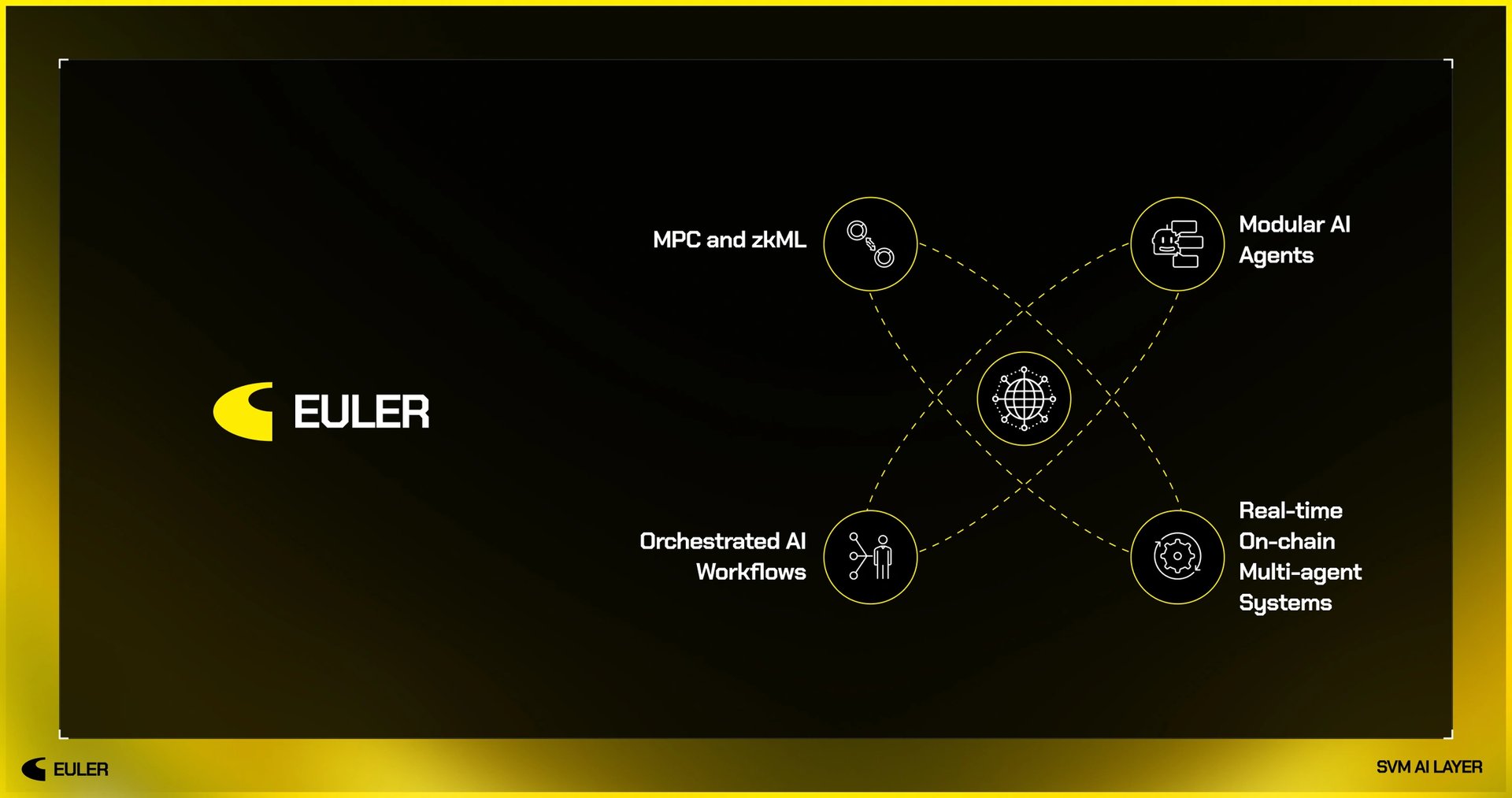
Euler MCP(模型上下文协议)是一个基础架构层,用于标准化 AI 代理 与 Solana 区块链 和更广泛的去中心化环境交互的方式。它直接构建在 Solana 虚拟机 (SVM) 之上,从而实现自主代理与链上系统之间的实时、模块化和安全通信。
MCP 允许 AI 代理 通过一致的 API 查询 区块链 数据、执行交易和管理加密身份。通过抽象 区块链 交互的复杂性,MCP 降低了开发开销并支持 AI 应用程序的可扩展部署。它允许代理处理实时数据、做出上下文感知的决策,并在没有人为干预的情况下自主行动。作为 Euler 更广泛架构的一部分,MCP 在使 AI 系统能够作为去中心化生态系统中的自主智能参与者发挥作用方面发挥着核心作用。 [7]
技术
Euler 的技术堆栈将高性能 区块链 基础设施与先进的加密和隐私保护技术相结合,以支持去中心化的 AI 系统。它构建在 Solana 之上,Solana 因其低延迟执行、高吞吐量以及对确定性实时处理的支持而被选中,这些是多代理 AI 操作的关键要求。Solana 的 历史证明 共识机制 实现了高效的、带时间戳的交易排序,从而使 AI 代理 能够以一致性和最小的延迟进行协调和行动。
为了增强安全性,Euler 集成了可信执行环境 (TEE),该环境为执行敏感的 AI 任务提供了隔离的、防篡改的区域。这确保了计算受到保护,免受未经授权的访问或操纵。Euler 还结合了 零知识机器学习 (zkML),从而使 AI 代理 能够在不泄露底层信息的情况下处理加密数据。这为诸如 DeFi、身份验证和分析等应用程序实现了安全和私密的推理。
总之,Solana 的性能、TEE 的安全计算和 zkML 的数据隐私为 Euler 的 AI 基础层及其核心组件(AI 基准、AI 编排器和 AI Base 链)奠定了基础,从而在去中心化环境中实现了高效、安全和自主的 AI 执行。 [2]
EULER
$EULER 代币是 Euler 生态系统的原生 实用 和 治理 资产。它专门通过 去中心化交易所 推出,以促进开放访问并避免中心化控制或私人分配,它是协调网络内去中心化经济活动的主要机制。
其通货紧缩模型通过与生态系统使用量相关的自动 销毁 来减少代币供应,从而激励参与 AI 开发、流动性供应和治理。$EULER 还支持链上治理,允许持有者对协议升级、资源分配和 AI 代理参数进行投票,从而确保系统通过社区主导的决策不断发展。 [2]
合作伙伴
- DDAI
- MetaMars
- Fomoin
- OMNIA
- M3 DAO
- Pop Max
- Swan Chain
- DePIN Union
- Trl Co
- Hive Intelligence
- AI Telegraph
- Aicern
- Binance Wallet
- AIxBlock
- LinkLayer AI
- Memo Labs
- Cryplex
- NFT AI
- Sekuya
- Orbler
- Jumbo Blockchain
- SFT Protocol
- Openpad
发现错误了吗?
